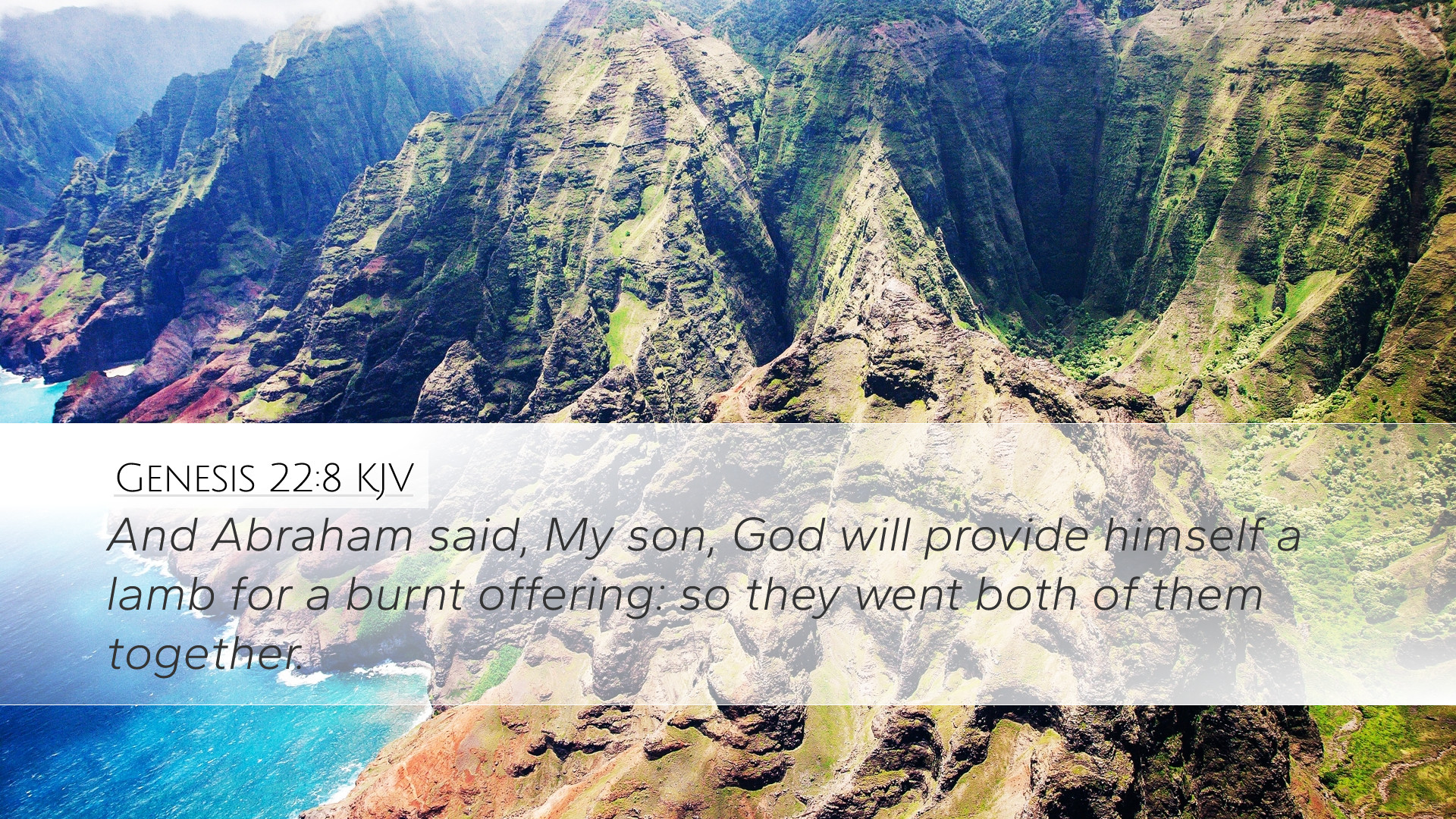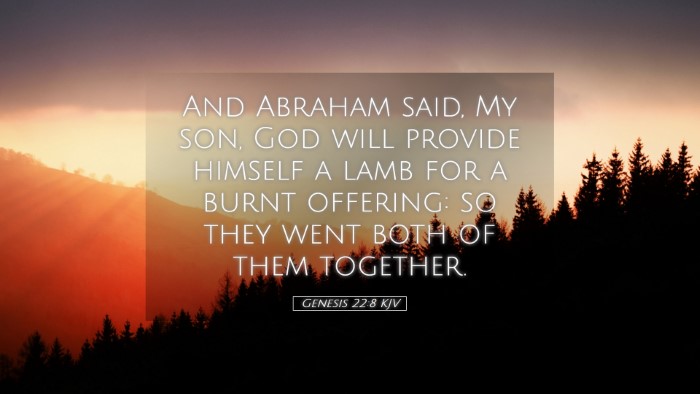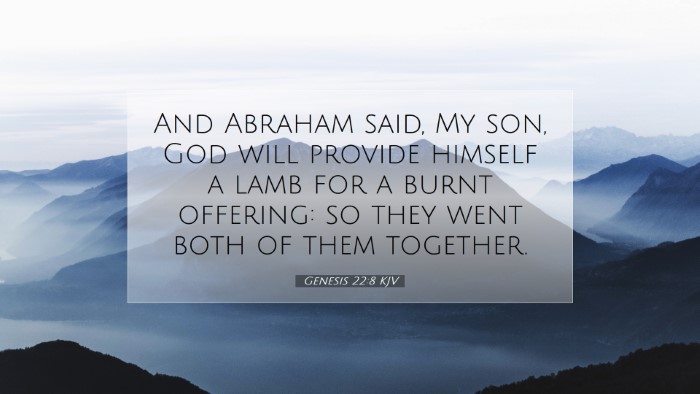Commentary on Genesis 22:8
Verse Text: "And Abraham said, 'My son, God will provide for Himself the lamb for a burnt offering.' So the two of them went together."
Introduction
This verse presents a pivotal moment in the story of Abraham and Isaac, encapsulating themes of faith, obedience, and divine provision. In the context of Genesis 22, which recounts the binding of Isaac, the dialogue between father and son reveals profound theological implications that resonate through both Testaments of the Bible.
Abraham's Profound Faith
Abraham's response to Isaac’s inquiry about the lamb for the sacrifice provides insight into his character and trust in God. Both Matthew Henry and Adam Clarke emphasize Abraham's unwavering faith during this critical trial.
- Matthew Henry: He posits that Abraham enduringly believed God would provide a substitute, reflecting a deep comprehension of God’s covenant and promises. Henry underscores that this foreknowledge of God's provision points towards the ultimate sacrifice in Christ.
- Albert Barnes: Barnes highlights that Abraham might not fully understand how God would provide, yet he trusted God's character. This trust illustrates that faith often requires stepping into the unknown while resting on God's assurances.
- Adam Clarke: Clarke elaborates on the possibility that Abraham anticipated a miraculous provision, which aligns with the broader theme of God’s intervention in human affairs. He notes that this act of faith prepares the way for a revelation of God's provision for mankind.
Theological Implications of the Lamb
The mention of the "lamb" is crucial in understanding the typology of sacrifice in Scripture. The term serves as a foreshadowing of Christ, the Lamb of God, who takes away the sins of the world. This typological interpretation is pointed out distinctly by:
- Matthew Henry: He asserts that the lamb not only signifies an offering but also symbolizes God's future provision in Christ. Henry connects this narrative to the Passover lamb, reinforcing the profound depth of God's redemptive plan.
- Albert Barnes: Barnes emphasizes that this declaration by Abraham signifies a strong prophetic element; casting a shadow of the coming perfect sacrifice, thus illuminating the hope of salvation that would come through the Messiah.
- Adam Clarke: Clarke also observes the significance of sacrifice in ancient worship, illustrating that the lamb points towards the necessity of atonement, embodying the heart of God’s plan for redemption.
Parental Guidance and Instruction
In this dialogue, there is significant insight to be gleaned about the relationship between Abraham and Isaac. It showcases a model of godly parenting, where trust in God is imparted to the next generation.
- Matthew Henry: Henry notes that Abraham's response is not only a demonstration of faith but also a teaching moment for Isaac. This dialogue prepares Isaac for the understanding of God's ways and the nature of sacrificial worship.
- Albert Barnes: He observes that Abraham's assurance reaffirms his role as a spiritual leader within his family. It showcases the importance of instilling faith in one's children, exemplifying how to look to God in times of uncertainty.
- Adam Clarke: Clarke brings out the aspect of reassurance that Abraham provides Isaac. It exemplifies patience and wisdom as a parent, guiding his son toward a posture of trust in God's provision.
Conclusion
Genesis 22:8 serves not only as a verse that signifies a moment of obedience and faith but also as a cornerstone of Christian doctrine regarding God’s covenantal faithfulness and the sacrifice of Christ. The insights drawn from the commentaries of Matthew Henry, Albert Barnes, and Adam Clarke provide rich theological depth, merging historical context with contemporary application.
In essence, this profound moment in Abraham’s life is a testament to the overarching narrative of Scripture — that God is the ultimate provider and that His plans, although sometimes inscrutable, are always woven with purpose and love.


